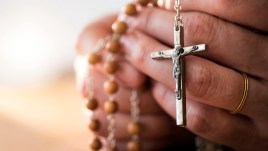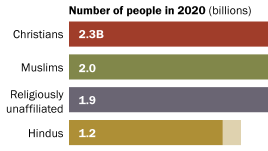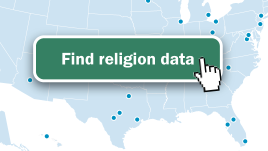
Spirituality and Religion: How Does the U.S. Compare With Other Countries?
Nearly seven-in-ten Americans identify with a religion – higher than the shares seen in several other wealthy countries. Explore our interactive feature to see how the U.S. compares with more than 30 countries on questions about spirituality and religion.



















